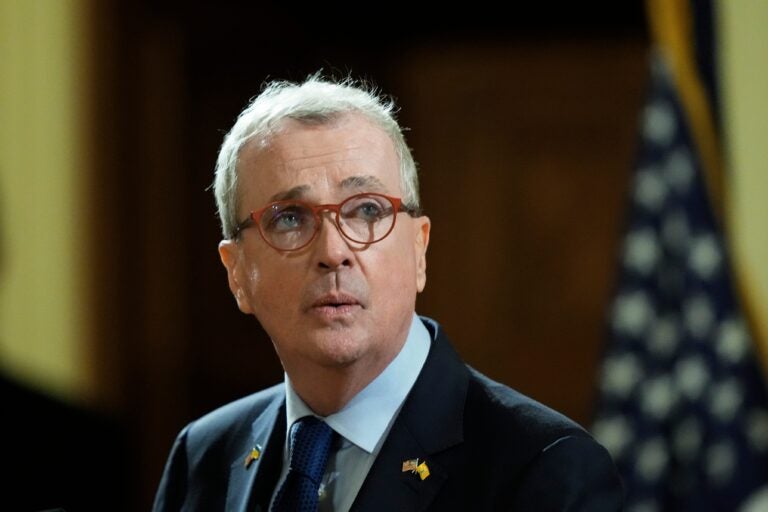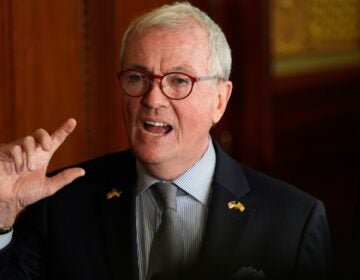Hours after inauguration, N.J Gov. Phil Murphy asks Trump to review NYC congestion pricing ‘disaster’
With the congestion pricing toll, drivers must pay an extra $9 to enter midtown Manhattan.

New Jersey Gov. Phil Murphy delivers his State of the State address to a joint session of the Legislature at the statehouse, in Trenton, N.J., Jan. 9, 2024. (AP Photo/Matt Rourke, File)
From Camden and Cherry Hill to Trenton and the Jersey Shore, what about life in New Jersey do you want WHYY News to cover? Let us know.
Hours after Donald Trump was sworn into office as the president, New Jersey Gov. Phil Murphy asked him to review federal approval of New York’s congestion pricing program, which costs New Jersey drivers an additional $9 to enter midtown Manhattan.
In a letter sent to Trump on Monday, Murphy said, “I welcome any opportunity to work with you and your Administration where we can find common ground.”
Murphy then reminded the president that he called congestion pricing “a disaster for NYC” during his campaign.
Murphy referred to the new toll as “a disaster for working- and middle-class New Jersey commuters and residents who need or want to visit lower Manhattan,” and said, “New York’s scheme has never been well-designed or adequately studied.”
The governor said he hopes the president “will ensure that this request receives prompt attention from the relevant officials within your Administration.”
The Murphy administration tried but failed to block congestion pricing in the courts, arguing that the new toll was unfair and would increase traffic and pollution in the Garden State. Congestion pricing took effect earlier this month.

Get daily updates from WHYY News!
WHYY is your source for fact-based, in-depth journalism and information. As a nonprofit organization, we rely on financial support from readers like you. Please give today.




